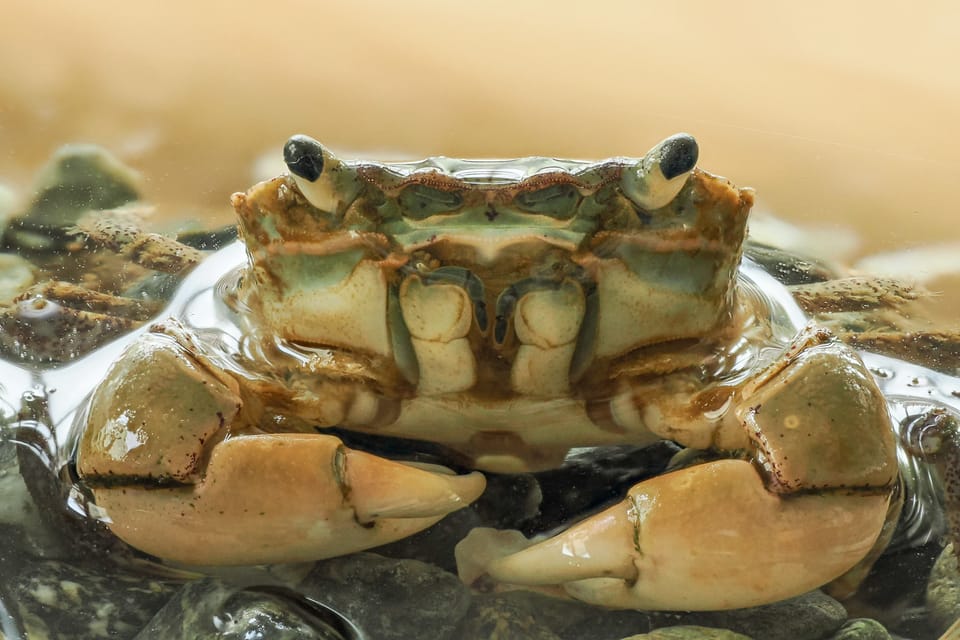EcoWest News, August 13, 2024

Welcome to EcoWest News, a weekly round-up of news and resources that you can put to use in addressing environmental issues and protecting the wild in your community.
Across the West
Polar bears in the high Arctic may be less able to adapt to climate warming, while bears in the Hudson Bay region that have already experienced warmer temperatures may be genetically better adapted for higher temperatures. [Winnipeg Sun]
Prairie potholes, long despised and eradicated by farmers, are minuscule hotspots of biodiversity, breeding grounds for waterfowl and pollinators, and mini air conditioners. [Canadian Geographic]
An art display on climate anxiety will be on display at the Fifth Parallel Gallery, University of Regina, from Aug. 20-27. Visitors are invited to a free in-gallery event titled Climate Anxiety Conversation and Support at 7pm on Aug 27. [Precipice]
Southern resident killer whales are on a path to extinction. A federal emergency protection order could give them a fighting chance. [Times Colonist]
Turtle Conservation Revelstoke is protecting the endangered Western Painted Turtle by raising awareness of turtle crossings and removing debris and litter that damage turtle nesting areas. [Revelstoke Mountaineer] Here’s more information about the Western Painted Turtle. [Wildsight]
Across Canada
“Choosing between adaptation to climate change or mitigation of emissions is a false choice—at this point, we need to do both … Reducing emissions as swiftly as possible will help blunt the worst effects of climate change down the road, and investing in adaptation now will help to keep communities and people safe while reducing the economic drag of climate change.” [The Energy Mix]
Around the World
Winemakers around the world are using bats to control the insect pests threatening their crops. “How neat would it be if bats helped change the paradigm away from chemical pesticides into more biodiversity friendly practices?” [The Drinks Business]
Transportation
“Investing in public transit is one of the most sensible and impactful things we can do to address the climate crisis.” [The Revelator]
Airlines are trying to identify sustainable aviation fuels but are running into problems with supply and the impact on other sectors if they were to use biofuels. [Inside Climate News]
Biofuel crops frequently require large-scale monoculture with substantial inputs of fertilizers, pesticides, and industrial machinery. “The industry should prioritize biofuels that don’t compete with food production, such as those derived from algae or agricultural residues, and develop small-scale, niche productions that minimize resource inputs.” [JSTOR Daily]
Making a Difference
Community bike shops offer bike maintenance education, parts, repair space, and rebuilt bikes for sale or donation. Result: they empower people to ride a bicycle and keep thousands of bikes out of landfills. [The Tyee]
Farmers in Saskatchewan are using high-tech tools (e.g. soil monitoring systems, weather stations) and biologicals to understand and benefit from healthy soil. [The Narwhal]
Energise Barnsley is one of the UK’s largest community energy providers, providing free solar panels to families in social housing. “In the first year, tenants have saved over £40,000 in reduced electricity bills, with the systems generating over 800 MWh’s of electricity, and over 400 tonnes of reduced carbon emissions.” [Energise Barnsley]
DIY
Sharing nature photos on social media can destroy the nature we love so much. Make ethical choices – don’t use bird calls or bait to attract wildlife and don’t post locations. [The Conversation]
Nature’s Wonders
Canada’s newest and largest Marine Protected Area is 3 times the size of Vancouver Island. “The underwater mountain ranges provide unique habitat, and the hydrothermal vents produce warm water loaded with nutrients, acting as a natural incubator for egg-laying creatures of the deep.” [Canadian Geographic]
Photo credit: https://www.flickr.com/photos/apmckinlay/53901801607/
EcoFriendly West informs and encourages initiatives that support Western Canada’s natural environment through its online publication and the Nature Companion website/app. Like us on Facebook, follow us on Twitter or Mastodon, or subscribe by email.

Member discussion